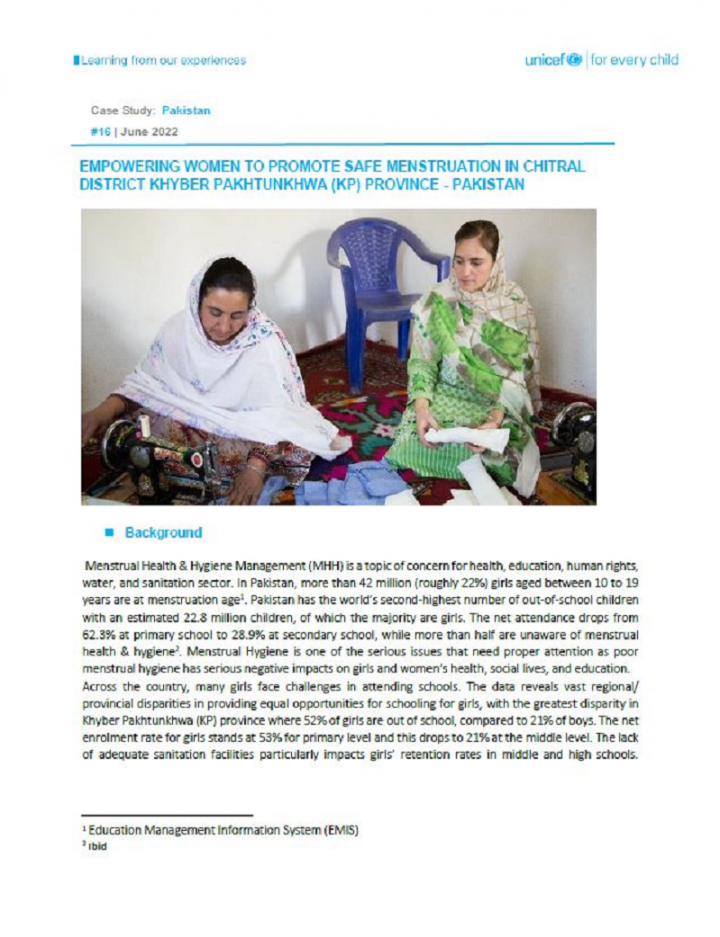EMPOWERING WOMEN TO PROMOTE SAFE MENSTRUATION IN CHITRAL DISTRICT KHYBER PAKHTUNKHWA (KP) PROVINCE - PAKISTAN
Kakakhel, W. S. (2022)

Published in: 2022
Pages: 4
Publisher:
UNICEF
Author:
Kakakhel, W. S.
Uploaded by:
SuSanA Admin
894 Views
8 Downloads
Menstrual Health & Hygiene Management (MHH) is a topic of concern for health, education, human rights, water, and sanitation sector. In Pakistan, more than 42 million (roughly 22%) girls aged between 10 to 19 years are at menstruation age1. Pakistan has the world’s second-highest number of out-of-school children with an estimated 22.8 million children, of which the majority are girls. The net attendance drops from 62.3% at primary school to 28.9% at secondary school, while more than half are unaware of menstrual health & hygiene2. Menstrual Hygiene is one of the serious issues that need proper attention as poor menstrual hygiene has serious negative impacts on girls and women’s health, social lives, and education.
Across the country, many girls face challenges in attending schools. The data reveals vast regional/ provincial disparities in providing equal opportunities for schooling for girls, with the greatest disparity in Khyber Pakhtunkhwa (KP) province where 52% of girls are out of school, compared to 21% of boys. The net enrolment rate for girls stands at 53% for primary level and this drops to 21% at the middle level. The lack of adequate sanitation facilities particularly impacts girls’ retention rates in middle and high schools.
Bibliographic information
Kakakhel, W. S. (2022). EMPOWERING WOMEN TO PROMOTE SAFE MENSTRUATION IN CHITRAL DISTRICT KHYBER PAKHTUNKHWA (KP) PROVINCE - PAKISTAN. UNICEF
Filter tags
English Gender equality Menstrual Health and Hygiene (MHH) South Asia Women's rights & representation and empowerment














